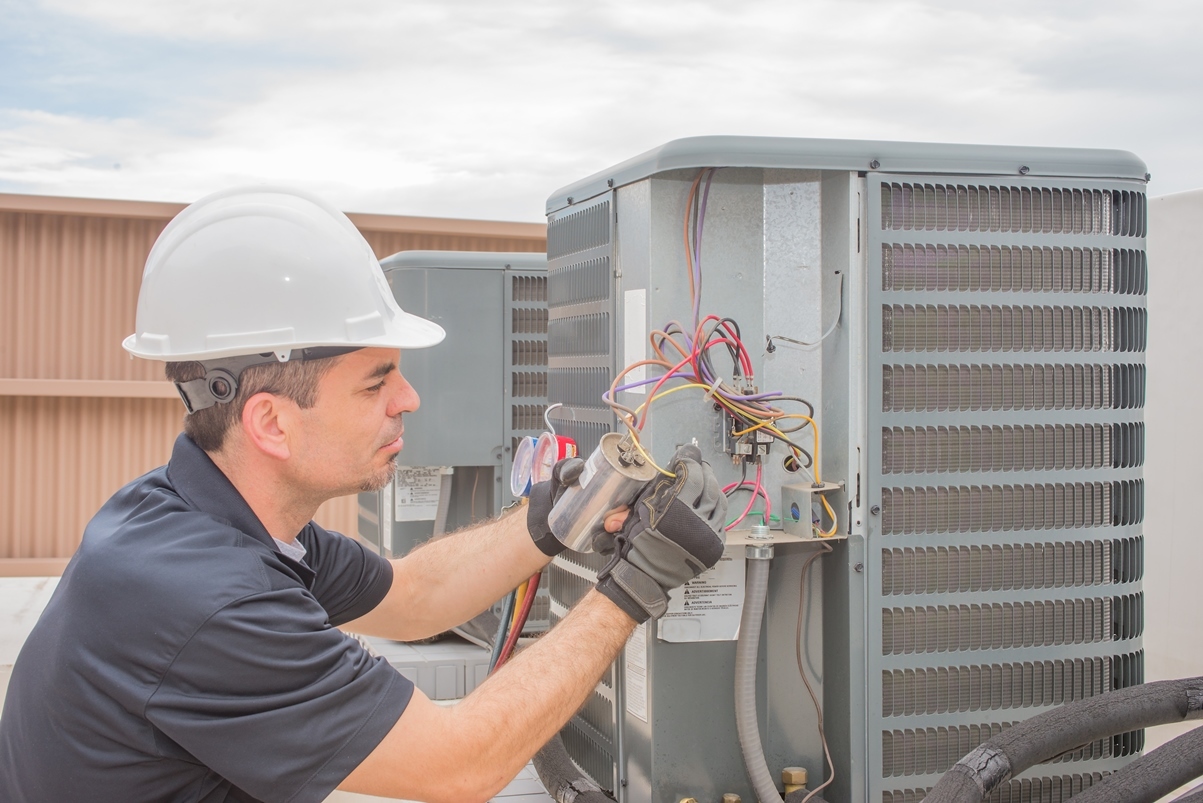
- Introduction to Commercial HVAC Systems
In today’s commercial settings, HVAC (Heating, Ventilation, and Air Conditioning) systems play a crucial role in maintaining comfortable indoor environments for employees, customers, and visitors. These systems are responsible for regulating temperature, humidity, and air quality to ensure optimal comfort and productivity. There are various types of commercial HVAC systems, including rooftop units, split systems, and packaged units, each tailored to meet the unique needs of different commercial spaces. Regular maintenance is essential for extending the lifespan of commercial HVAC systems and maximizing their efficiency and performance to get extend furnace life with HVAC maintenance.
II. Signs of Commercial HVAC System Issues
A. Uneven Heating or Cooling
Uneven heating or cooling throughout a commercial space can indicate underlying issues with the HVAC system. Temperature discrepancies may result from issues such as clogged air filters, ductwork leaks, or malfunctioning components. These discrepancies can lead to discomfort among occupants and impact productivity levels within the workplace.
B. Strange Noises or Odors
Unusual sounds or odors emanating from the HVAC system can be early warning signs of potential malfunctions. Strange noises such as banging, rattling, or squealing may indicate loose or worn-out components, while unpleasant odors could be a sign of mold, mildew, or burning electrical components. It’s essential to address these issues promptly to prevent further damage to the system.
C. Increased Energy Bills
A sudden spike in energy bills without a corresponding increase in usage can signal inefficiencies or malfunctions within the HVAC system. Malfunctioning components or improper system operation can cause the system to work harder, leading to higher energy consumption and increased utility costs. Monitoring energy bills can help identify potential HVAC issues that require attention.
III. Importance of Prompt Commercial HVAC Repair
A. Preventing System Downtime
Timely HVAC repairs are essential for preventing system downtime, which can disrupt business operations and affect productivity. A malfunctioning HVAC system can lead to uncomfortable indoor conditions, causing discomfort among employees and customers alike. Prompt repairs help minimize disruptions and ensure uninterrupted workflow within the commercial space.
B. Avoiding Costly Repairs
Addressing minor HVAC issues promptly can prevent them from escalating into more significant and costly repairs down the line. Neglecting maintenance and repairs can result in extensive damage to the system, leading to expensive repairs or even premature system failure. Investing in regular maintenance and addressing repairs promptly can save businesses money in the long run.
C. Ensuring Comfort and Safety
A well-functioning HVAC system is essential for maintaining a comfortable and safe indoor environment for occupants. Inefficient or malfunctioning HVAC systems can compromise indoor air quality, leading to health issues such as allergies or respiratory problems. Additionally, malfunctioning HVAC systems can pose safety hazards, such as carbon monoxide leaks or electrical fires. Prompt repairs and maintenance help ensure the comfort, health, and safety of everyone within the commercial space.
IV. Professional Commercial HVAC Repair Services
A. Diagnostic Testing and Troubleshooting
HVAC professionals conduct comprehensive diagnostic testing to identify the root cause of HVAC issues. By utilizing advanced diagnostic tools and techniques, they can pinpoint the source of the problem and develop a tailored repair plan to address it effectively.
B. Repair and Replacement of Components
HVAC technicians are trained to repair or replace faulty components within the HVAC system. Whether it’s a malfunctioning thermostat, a worn-out compressor, or a leaky duct, they have the expertise and resources to restore the system to optimal functionality.
C. System Optimization and Efficiency Improvements
In addition to repairs, HVAC professionals can optimize the performance and efficiency of commercial HVAC systems. They can fine-tune system settings, implement energy-saving solutions, and recommend upgrades to improve system performance and reduce energy consumption.
V. Benefits of Regular Commercial HVAC Maintenance
A. Improved System Performance and Efficiency
Regular maintenance helps keep commercial HVAC systems running smoothly, reducing the risk of breakdowns and ensuring optimal performance and efficiency. By addressing minor issues before they escalate, maintenance helps maximize the lifespan of HVAC equipment and minimize energy consumption.
B. Cost Savings and Return on Investment
Investing in regular maintenance pays off in the form of lower energy bills, reduced repair costs, and extended system lifespan. By keeping HVAC systems in top condition, businesses can save money on utility bills and avoid expensive repairs or replacements down the line.
C. Enhanced Comfort and Productivity
Well-maintained HVAC systems provide a comfortable and productive indoor environment for employees, customers, and visitors. By ensuring consistent temperatures and good indoor air quality, businesses can create a welcoming atmosphere that promotes productivity and enhances the overall customer experience.
In summary, commercial HVAC repair is essential for maintaining optimal comfort, safety, and efficiency within commercial spaces. By addressing HVAC issues promptly and investing in regular maintenance, businesses can ensure that their HVAC systems operate smoothly and reliably for years to come


